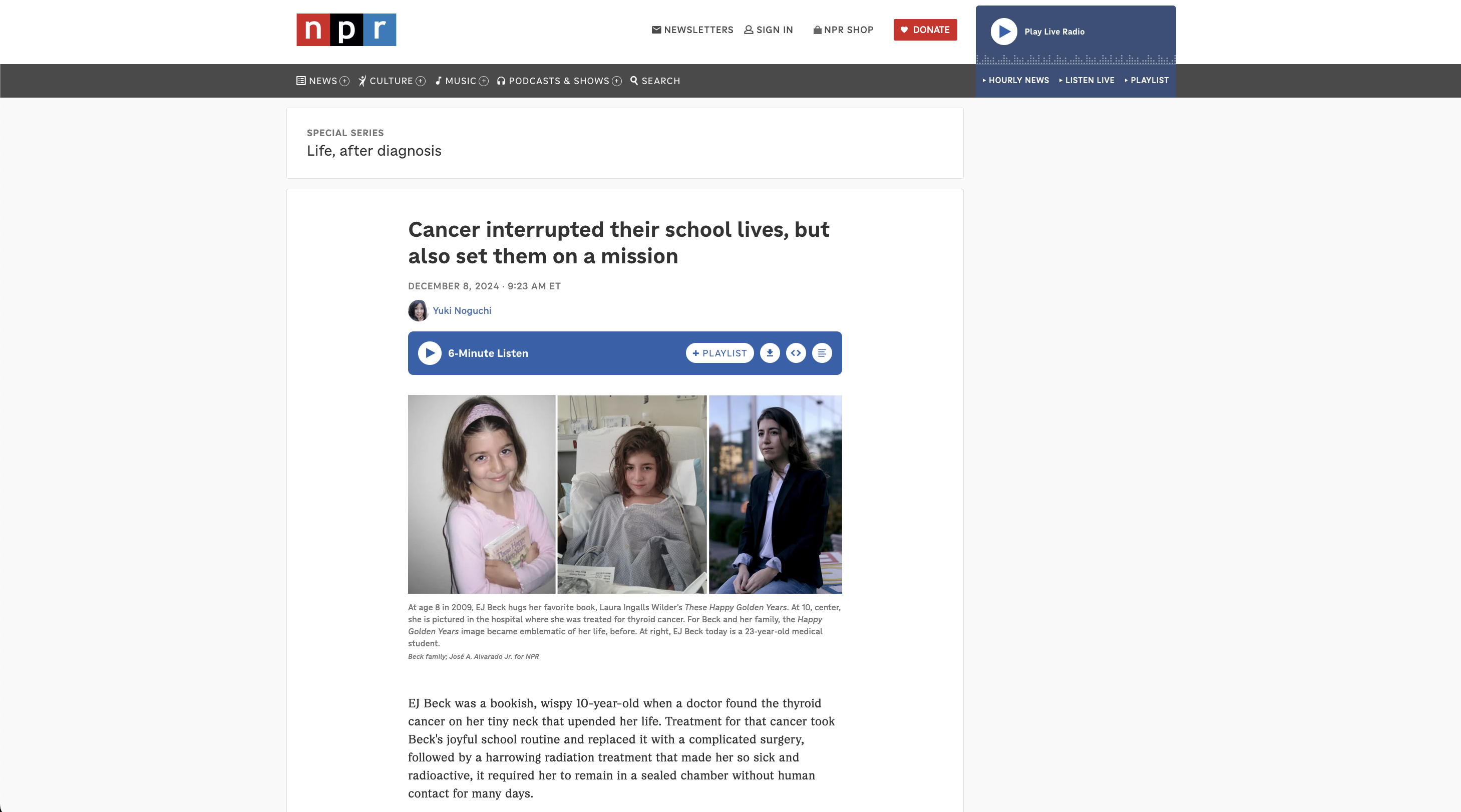News
for NPR: Cancer interrupted their school lives, but also set them on a mission
josé a. alvarado jr.
Jan 6, 2025
Beck, along with her parents, had decided not to tell friends, her teachers or even her two younger sisters about her illness, hoping that might help her slip back into normal life, eventually. But in the short term, it intensified her isolation in the hospital, where she passed her solitary confinement rereading the Harry Potter series and drawing on a picture of Spiderman posted to the window.
"I was so, so jealous because Spiderman could just leave the hospital, and I couldn't," Beck recalls. "Spiderman got to take radiation, and he got cool powers; I got sick and sad and lonely and tired."
Today, Beck is a 23-year-old medical student, and among a growing population of 18 million people who are surviving cancer for much longer, thanks to myriad recent advances like AI-powered tumor detection and new immunotherapies that chemically target cancers. Survival rates for pediatric cancer, in particular, are considered a crowning medical achievement: Those rates increased from 58% in the mid-1970s to 85% today.
Photographed for NPR, with words by Yuki Noguchi
 Cancer interrupted their school lives, but also set them on a mission
Cancer interrupted their school lives, but also set them on a missionPediatric cancer survival rates are a crowning medical achievement. But the impact of missing school is a less-discussed side effect children then face.
Npr.org
608

